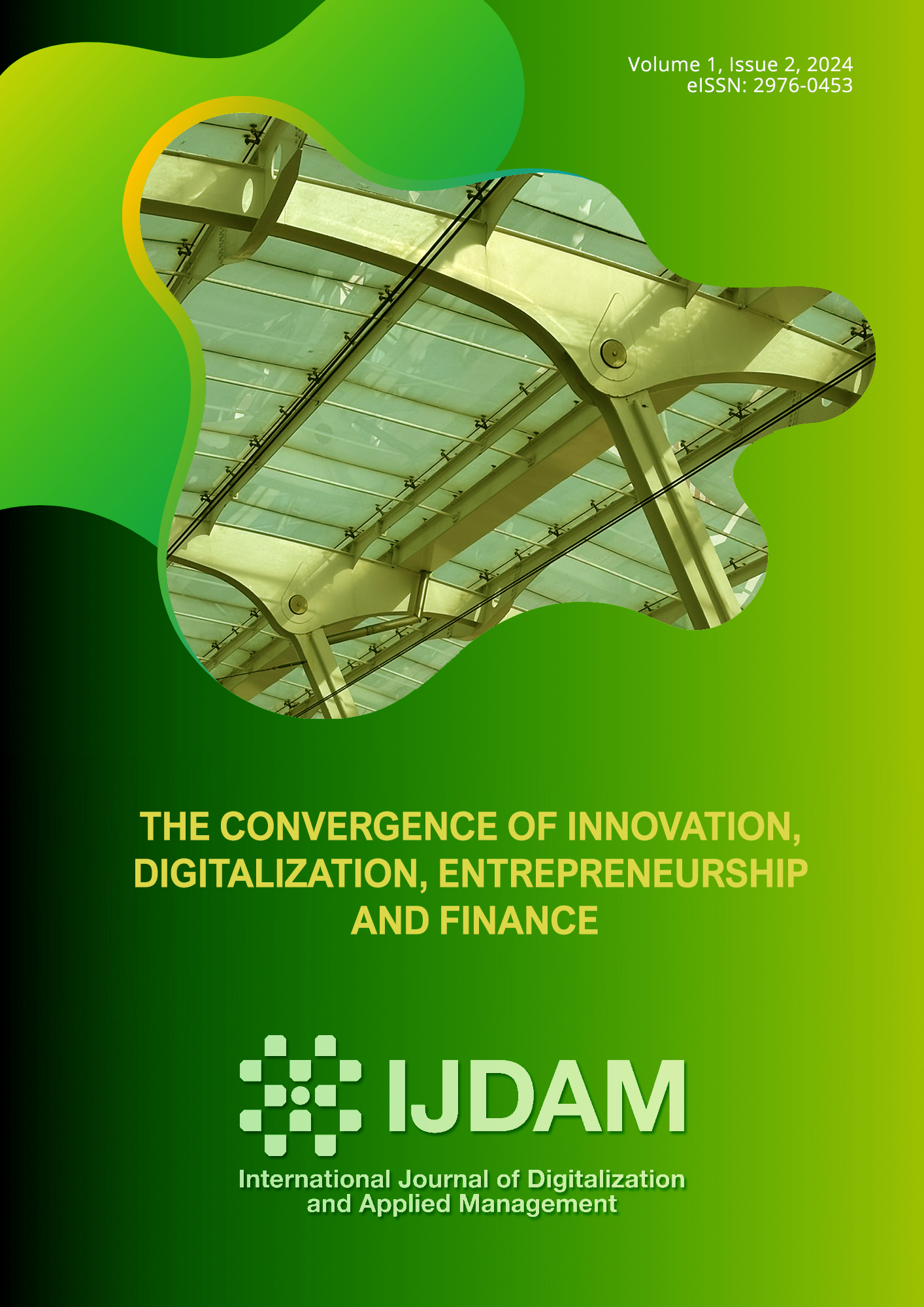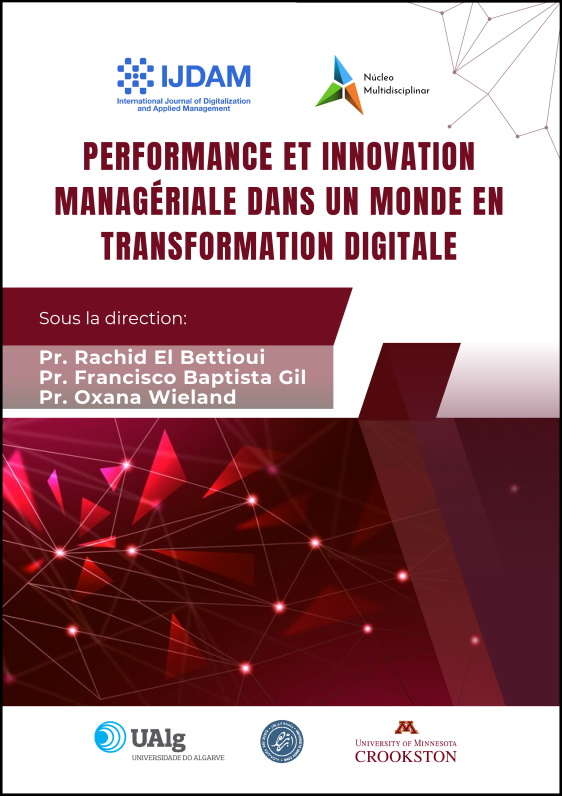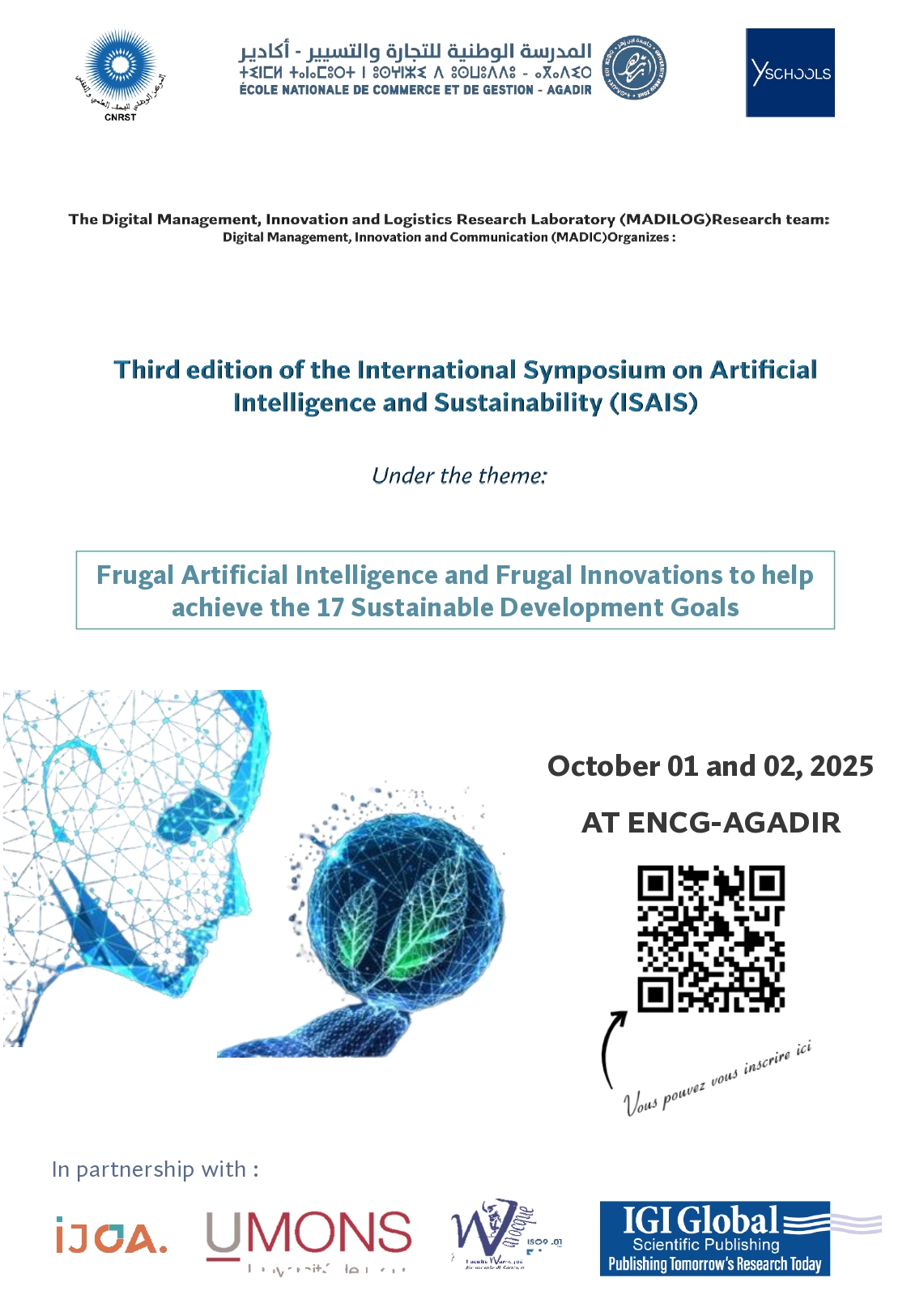The Environmental sustainability based on artificial intelligence
Marketing benefits of local products
DOI:
https://doi.org/10.23882/ijdam.24102Keywords:
Environmental sustainability, Artificial intelligence, Marketing of Local products, Geographic location, Sustainable developmentAbstract
This scientific article proposes the development of a conceptual research model to analyze the marketing benefits of local products in the context of environmental sustainability, using artificial intelligence (AI). The model focuses on variations in marketing benefits according to three main variables: consumer, geographic location and product types.
The aim is to develop a theoretical framework to guide future research, identifying key factors and their interrelationships. Using AI, this conceptual model aims to provide an in-depth understanding of sustainable consumption dynamics and effective marketing strategies for local products. Expected results include a better understanding of consumer behavior and sustainable consumption practices, as well as recommendations to optimize the marketing strategies of local producers.
References
Babin, B. J., & Harris, E. (2021). CB: Consumer Behavior (9 edition). Cengage Learning.
Cacioppo, J. T., Petty, R. E., & Kao, C. F. (1984). The efficient assessment of need for cognition. Journal of Personality Assessment, 48(3), 306‑307. https://doi.org/10.1207/s15327752jpa4803_13
Carlson, A., & Sakao, T. (2020). Environmental assessment of consequences from predictive maintenance with artificial intelligence techniques : Importance of the system boundary. Procedia CIRP, 90, 171‑175. https://doi.org/10.1016/j.procir.2020.01.093
Choi, S., & Ng, A. (2011). Environmental and Economic Dimensions of Sustainability and Price Effects on Consumer Responses. Journal of Business Ethics, 104(2), 269‑282. https://doi.org/10.1007/s10551-011-0908-8
Connelly, B. L., Certo, S. T., Ireland, R. D., & Reutzel, C. R. (2011). Signaling Theory : A Review and Assessment. Journal of Management, 37(1), 39‑67. https://doi.org/10.1177/0149206310388419
Di Vaio, A., Boccia, F., Landriani, L., & Palladino, R. (2020). Artificial Intelligence in the Agri- Food System : Rethinking Sustainable Business Models in the COVID-19 Scenario. Sustainability, 12(12), Article 12. https://doi.org/10.3390/su12124851
Fraj-Andrés, E., Martinez-Salinas, E., & Matute-Vallejo, J. (2009). A Multidimensional Approach to the Influence of Environmental Marketing and Orientation on the Firm’s Organizational Performance. Journal of Business Ethics, 88(2), 263‑286. https://doi.org/10.1007/s10551-008-9962-2
Frank, B. (2021). Artificial intelligence-enabled environmental sustainability of products : Marketing benefits and their variation by consumer, location, and product types. Journal of Cleaner Production, 285, 125242. https://doi.org/10.1016/j.jclepro.2020.125242
Frank, B., Enkawa, T., Schvaneveldt, S. J., & Herbas Torrico, B. (2015). Antecedents and consequences of innate willingness to pay for innovations : Understanding motivations and consumer preferences of prospective early adopters. Technological Forecasting and Social Change, 99, 252‑266. https://doi.org/10.1016/j.techfore.2015.06.029
Herbas Torrico, B., Frank, B., & Arandia Tavera, C. (2018). Corporate social responsibility in Bolivia : Meanings and consequences. International Journal of Corporate Social Responsibility, 3(1), 7. https://doi.org/10.1186/s40991-018-0029-0
Holmes, J. (1995). Women, Men and Politeness (1st edition). Routledge.
Kaab, A., Sharifi, M., Mobli, H., Nabavi-Pelesaraei, A., & Chau, K. (2019). Combined life cycle assessment and artificial intelligence for prediction of output energy and environmental impacts of sugarcane production. Science of The Total Environment, 664, 1005‑1019. https://doi.org/10.1016/j.scitotenv.2019.02.004
Koller, M., Floh, A., & Zauner, A. (2011). Further insights into perceived value and consumer loyalty : A “Green” perspective. Psychology & Marketing, 28(12), 1154‑1176. https://doi.org/10.1002/mar.20432
Lee, K. (2009). Gender differences in Hong Kong adolescent consumers’ green purchasing behavior. Journal of Consumer Marketing, 26(2), 87‑96. https://doi.org/10.1108/07363760910940456
Liobikienė, G., Mandravickaitė, J., & Bernatonienė, J. (2016). Theory of planned behavior approach to understand the green purchasing behavior in the EU : A cross-cultural study. Ecological Economics, 125, 38‑46. https://doi.org/10.1016/j.ecolecon.2016.02.008
Martínez, P., & Rodríguez del Bosque, I. (2013). CSR and customer loyalty : The roles of trust, customer identification with the company and satisfaction. International Journal of Hospitality Management, 35, 89‑99. https://doi.org/10.1016/j.ijhm.2013.05.009
Najafi, B., Ardabili, S. F., Shamshirband, S., Chau, K., & Rabczuk, T. (2018). Application of ANNs, ANFIS and RSM to estimating and optimizing the parameters that affect the yield and cost of biodiesel production. Engineering Applications of Computational Fluid Mechanics, 12(1), 611‑624.
Nilashi, M., Rupani, P. F., Rupani, M. M., Kamyab, H., Shao, W., Ahmadi, H., Rashid, T. A., & Aljojo, N. (2019). Measuring sustainability through ecological sustainability and human sustainability : A machine learning approach. Journal of Cleaner Production, 240, 118162. https://doi.org/10.1016/j.jclepro.2019.118162
Nižetić, S., Djilali, N., Papadopoulos, A., & Rodrigues, J. J. P. C. (2019). Smart technologies for promotion of energy efficiency, utilization of sustainable resources and waste management. Journal of Cleaner Production, 231, 565‑591. https://doi.org/10.1016/j.jclepro.2019.04.397
Nosratabadi, S., Mosavi, A., Shamshirband, S., Zavadskas, E., Rakotonirainy, A., & Chau, K. W. (2019). Sustainable business models : A review. Sustainability, 11(6), Article 6.
Nyilasy, G. (2014). Perceived Greenwashing : The Interactive Effects of Green Advertising and Corporate Environmental Performance on Consumer Reactions. Journal of Business Ethics, 125(4), 693.
Ottman, J. A. (2011). The New Rules of Green Marketing : Strategies, Tools, and Inspiration for Sustainable Branding (Illustrated edition). Berrett-Koehler Publishers.
Polverino, G., Karakaya, M., Spinello, C., Soman, V. R., & Porfiri, M. (2019). Behavioural and life-history responses of mosquitofish to biologically inspired and interactive robotic predators. Journal of The Royal Society Interface, 16(158). https://doi.org/10.1098/rsif.2019.0359
Rizk, H., & Habib, M. K. (2018). Robotized Early Plant Health Monitoring System. IECON 2018 - 44th Annual Conference of the IEEE Industrial Electronics Society, 3795‑3800. https://doi.org/10.1109/IECON.2018.8592833
Russell, S., & Norvig, P. (2009). Artificial Intelligence : A Modern Approach (3rd edition). Pearson.
Schwartz, S. H., & Rubel, T. (2005). Sex differences in value priorities : Cross-cultural and multimethod studies. Journal of Personality and Social Psychology, 89(6), 1010‑1028. https://doi.org/10.1037/0022-3514.89.6.1010
Sen, S., Bhattacharya, C. B., & Korschun, D. (2006). The Role of Corporate Social Responsibility in Strengthening Multiple Stakeholder Relationships : A Field Experiment. Journal of the Academy of Marketing Science, 34(2), 158‑166. https://doi.org/10.1177/0092070305284978
Spence, M. (2002). Signaling in Retrospect and the Informational Structure of Markets. American Economic Review, 92(3), 434‑459. https://doi.org/10.1257/00028280260136200
Sudbury Riley, L., Kohlbacher, F., & Hofmeister, A. (2012). A cross-cultural analysis of pro- environmental consumer behaviour among seniors. Journal of Marketing Management, 28(3‑4), 290‑312. https://doi.org/10.1080/0267257X.2012.658841
Tanner, C., Kaiser, F. G., & WÖfing Kast, S. (2004). Contextual Conditions of Ecological Consumerism : A Food-Purchasing Survey. Environment and Behavior, 36(1), 94‑111. https://doi.org/10.1177/0013916503251437
Uçar, E., Dain, M.-A. L., & Joly, I. (2020). Digital Technologies in Circular Economy Transition : Evidence from Case Studies. Procedia CIRP, 90, 133‑136. https://doi.org/10.1016/j.procir.2020.01.058
Vainio, A. (2019). How consumers of meat-based and plant-based diets attend to scientific and commercial information sources : Eating motives, the need for cognition and ability to evaluate information. Appetite, 138, 72‑79. https://doi.org/10.1016/j.appet.2019.03.017
Wang, J., Wang, S., Xue, H., Wang, Y., & Li, J. (2018). Green image and consumers’ word-of- mouth intention in the green hotel industry : The moderating effect of Millennials. Journal of Cleaner Production, 181, 426‑436. https://doi.org/10.1016/j.jclepro.2018.01.250
Xu, B., & Lin, B. (2016). Regional differences of pollution emissions in China : Contributing factors and mitigation strategies. Journal of Cleaner Production, 112, 1454‑1463. https://doi.org/10.1016/j.jclepro.2015.03.067
Yang, C.-M. (2018). Effects of Message Strategy and Need for Cognition (NFC) on Consumer Attitudes : A Case of Corporate Social Responsibility (CSR) Advertising. Open Journal of Business and Management, 6(3), Article 3. https://doi.org/10.4236/ojbm.2018.63055
Zeithaml, V. A. (1988). Consumer Perceptions of Price, Quality, and Value : A Means-End Model and Synthesis of Evidence. Journal of Marketing, 52(3), 2‑22. https://doi.org/10.2307/1251446
Downloads
Published
How to Cite
Issue
Section
License
Copyright (c) 2024 Reda Rafii, Hassan AZOUAOUI

This work is licensed under a Creative Commons Attribution-NonCommercial 4.0 International License.


 Portugal
Portugal










